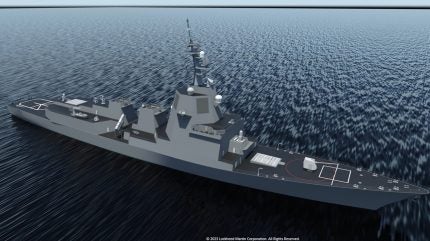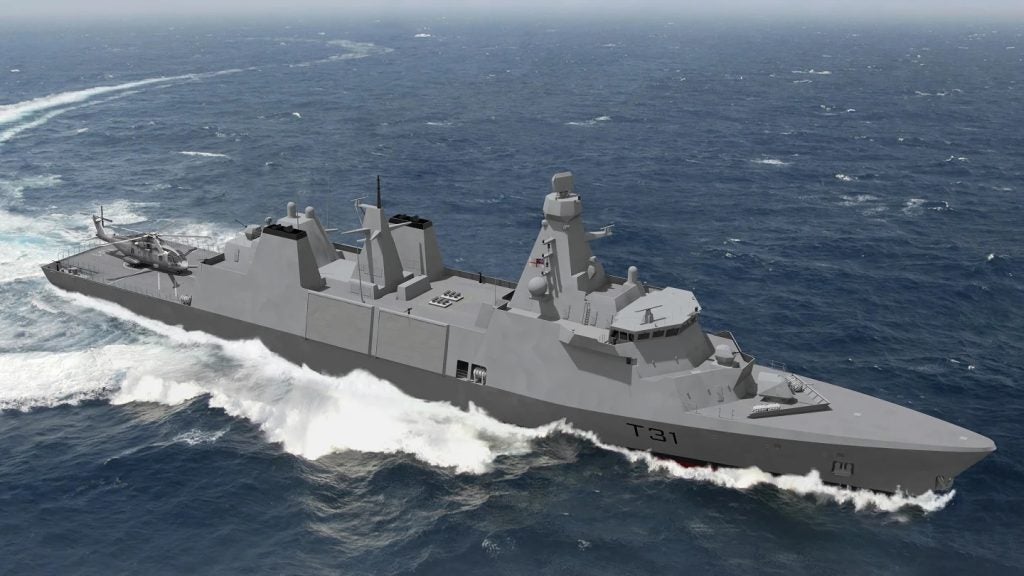
Japan’s Maritime Self-Defense Force has chosen Rolls-Royce‘s MT30 engines for its Aegis System-equipped vessels, marking the first use of twin MT30-powered hybrid electro-mechanical propulsion worldwide.
The MT30 will ensure that these new destroyers’ performance meets the speed requirements of the Japan Maritime Self-Defense Force (JMSDF). This advanced propulsion system not only enhances speed but also offers operational benefits. Compared to older engines, it requires less maintenance, facilitating smaller crew requirements and more efficient vessel operation.
The plans for the vessels were announced in August 2022. Construction is scheduled to begin in 2024, with the first vessel scheduled to be commissioned by the end of fiscal year 2027 and the other scheduled for the end of FY2028. However, delays are expected as Japan has yet to finalise the requirements for the vessels, as per GlobalData’s intelligence on the Japanese defence market.
In recent Aegis destroyer developments, Japan celebrated the commissioning of its first Maya-class Aegis Destroyer, JS Maya (DDG-179). Lockheed Martin‘s AN/SPY-7(v)1 radar, integral to the Aegis System Equipped Vessel (ASEV) program, achieved a breakthrough as it detected space objects, demonstrating its maturity and readiness for deployment.
The US Department of Defense supports Japan’s Aegis programme, with Lockheed Martin awarded a contract modification to deliver integration services for Japan’s two AESVs, enhancing Japan’s defence capabilities against evolving threats from North Korea and China.
Sam Cameron, Senior Vice President of Defence at Rolls-Royce, expressed enthusiasm for continued collaboration with Japan. “Having previously been selected to power the JMSDF fleet, we’re delighted that the MT30 has once again been chosen to power the country’s vessels. MT30 is powering many of the world’s most advanced platforms – including the FFM frigate programme – due to its power and propulsion providing ship builders and system designers with new options, choices and the ability to futureproof.”
How well do you really know your competitors?
Access the most comprehensive Company Profiles on the market, powered by GlobalData. Save hours of research. Gain competitive edge.

Thank you!
Your download email will arrive shortly
Not ready to buy yet? Download a free sample
We are confident about the unique quality of our Company Profiles. However, we want you to make the most beneficial decision for your business, so we offer a free sample that you can download by submitting the below form
By GlobalDataKawasaki Heavy Industries (KHI) will handle the construction, assembly, and testing of the MT30 engines within compact package engine enclosures, ensuring integration and performance verification of the entire propulsion system.
The MT30 engine is operational in various configurations worldwide, including mechanical, hybrid, and integrated-electric systems. Its use has been across multiple platforms, such as South Korea’s Daegu-class and Ulsan-class frigates, and Australia’s Hunter-class frigates.
As Rolls-Royce aims to establish the MT30 as the engine of choice across the Pacific Rim within the next decade, this collaboration with Japan is a step forward. The deployment of these engines in the ASEV programme reinforces the strong partnership between Japan and Rolls-Royce.







